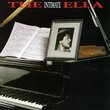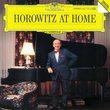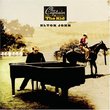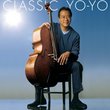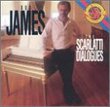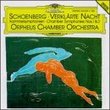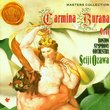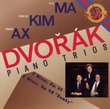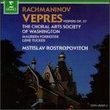| All Artists: Gabriel Faure, Cesar Franck, Jules Massenet, Camille Saint-Saens, Kathryn Stott Title: Paris La Belle Époque Members Wishing: 0 Total Copies: 0 Label: Sony Release Date: 4/29/2003 Genre: Classical Styles: Chamber Music, Forms & Genres, Concertos, Historical Periods, Classical (c.1770-1830), Instruments, Strings Number of Discs: 1 SwapaCD Credits: 1 UPC: 696998728721 |
Search - Gabriel Faure, Cesar Franck, Jules Massenet :: Paris La Belle Époque
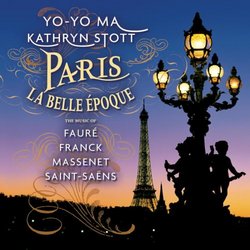 | Gabriel Faure, Cesar Franck, Jules Massenet Paris La Belle Époque Genre: Classical
The cello has often been called the king of string instruments because its range encompasses all four vocal registers. Nevertheless, cellists are always complaining of the comparative paucity of their literature, and feel ... more » |
Larger Image |
CD DetailsSynopsis
Amazon.com The cello has often been called the king of string instruments because its range encompasses all four vocal registers. Nevertheless, cellists are always complaining of the comparative paucity of their literature, and feel justified in raiding more fertile fields. Even Yo-Yo Ma, who has enriched the repertoire by commissioning a considerable number of new works and exploring the native music of different continents, cannot resist the temptation to engage in a little poaching. On this record, he performs four staples of the violin literature in transcriptions for cello, three of them his own. They are linked by their supposed influence on the French writer Marcel Proust and his famous novel, In Search of Lost Time, and take us to early 20th-century Paris, where Ma was born of Chinese parents five decades later. Naturally, the transcriptions do not work equally well. All retain the original keys and leave the piano parts intact; perhaps in an effort to reproduce the violin's bright tone-color, they also retain the original pitch for long stretches. This exploits the cello's "soprano" voice, but though Ma handles the stratospheric register masterfully, even he cannot make it sound natural, so it always comes as a relief when he lets his instrument sound like a real cello in its "tenor" or "bass" voice. Highlights are the Fauré A-major Sonata and the Saint-Saëns Havanaise: charming and elegant, the former is thoroughly romantic, exuberant and sunny; the latter captures the atmosphere and Spanish idiom brilliantly. You probably have to be a cellist to like the famous, nameless transcription of the Franck Sonata; the performance is a bit excessive in tempo, dynamics and rhythmic freedom. Throughout, pianist Kathryn Stott is a tower of strength and a model of empathy. --Edith Eisler Similarly Requested CDs
|
CD ReviewsTerrific! Dr. Christopher Coleman | HONG KONG | 07/07/2003 (5 out of 5 stars) "Yo-Yo Ma is unquestionably one of the most fascinating performers of classical music active today. He is possessed of a ferocious technique, innate musicality and a vast imagination. From his Silk Road project to his collaborations with artists from Bobby McFerrin to Tan Dun, he always seeks new and fascinating ventures. Consisting of four French pieces from the late Nineteenth Century, La Belle Epoque is not as unique as some of his undertakings but it does have its own special twist. These pieces were originally written for violin-and for Ma to perform them flawlessly on cello with its much larger fingerboard, thicker strings, and more difficult technique is amazing. That he does so in a way that is so convincing throughout is nearly miraculous.Sonatas by Gabriel Faure and Cesar Frank are the most substantial works on the disc. The Faure in particular is a delight, with its exuberant third movement and introspective second. Complementing these sonatas are the Meditation from Jules Massenet's opera Thais and Camille Saint-Saens' Havanaise. Ma's interpretation of the Massenet work is truly intense and Romantic, but not always meditative. His control of the line, in every aspect, from dynamics to tempo to vibrato shows him a master of the musical phrase. Pianist Kathryn Stott matches Ma superbly throughout every turn. But it is in the Saint-Saens, a delightful and almost comic Spanish dance alternating with virtuoso showpiece, that Ma really shines. His obvious joy in the music, coupled with his astonishing ability, makes this disc a real pleasure." Exquisite! Kyle Y | Toronto, ON CAN | 05/06/2003 (5 out of 5 stars) "I thoroughly enjoy this recording. My favourite piece out of the lot is Saint-Saëns' "Havanaise"; it is truly a romantic work of music. The onset of the distinguishing melodic string of notes is just beautiful; interestingly, the interaction of Ma's cello and Stott's piano is almost flirtatious. "Meditation From Thais" is also an outstanding piece; rhythmic and full of melancholy in nature, it is soothing after a long day at work. With these recordings, Ma's cello spends most of the time in the upper soprano (violin) ranges of the instrument, and it is quite amazing, which is why the conclusion to "Eternal Vow" from the Crouching Tiger/Hidden Dragon soundtrack is such a delight; the sound, although, not as natural as a violin, is nevertheless, pure and serene. And one major advantage the cello has over a violin in these pieces is the ability to also go deep and sound full; I have always enjoy the cello's ability to engulf the listener with its bass, sing to them in the midranges, then awe them with the highs. Go get this CD and enjoy!" Visions of 19th-century Paris Alan Lekan | Boulder, CO | 03/03/2006 (4 out of 5 stars) "Paris at the turn of the century was glorious and enjoying its "Golden Age" with music and the arts taking center stage in society. This was the age of Paris' grand architectural plan, the Eiffel Tower, the revolutionary poets and writers, the Impressionist painters Monet and Renoir, Toulouse Lautrec and the Moulin Rouge. No less prominent were the famous musical talents of the day: Saint-Saens, Massenet, Franck, Faure, Chausson, Debussy, d'Indy and later Ravel. There was a strong interconnectedness of these composers and many were dearly loved teachers. Faure owed his learning to Saint-Saens ... Debussy was mentored by Chausson who learned under Franck. Most retained respect and admiration for classical forms (shunning the fashionable Wagnerian influences) while Debussy went his own way with totally new innovations. Faure's music was the most "quintessential French" with its clarity, poise and moderation. Together, these composers restored the prominance of instrumental music in France that had been dominated by opera. In doing so they also defined a truly "French" romanticism - one with sensuous tonalities, rich chromatic textures and a passionate lyricism.
This CD features four of the more famous Parisian compositions of this magical era, but transcribed to cello. I noticed some music critics gave this CD scathing reviews (like David Hurwitz of ClassicsToday), citing major "issues" with such transcriptions such as "tonality incongruencies" with the cello here for music written explicitly for violin and piano. Additionally, complaints were leveled at the cellist for "an overly sweet and precious style." Well, after revisiting this CD recently, it puzzles me what's the bone of contention here. Yo-Yo Ma is no amatuer in his field nor does he lack refined taste or deep musical sense. His artistry and technical ability are extremely high, and his poised, astute playing is mezmerizing to watch in concert. In contrast to such overly-academic criticism, Gramophone had very positive reviews for this CD which matched what my ears heard and did not take such a "purist" line downgrading such transcriptions to paltry art. Perhaps, some have a sour taste for the marketing machine Ma is under by his promoters. But, the good side of recordings widely marketed like this one is that it makes classical music more "accessible" to the average person shopping at Borders Books. Ma is truly a "people's musician" who is approachable, understandable and satisfying to experience. People not inclined to purchase classical music will buy one of his CD's like this one because of these qualities or a promotion - and that seems a good thing. Regardless of one's perpective on transcriptions, Yo-Yo Ma brings great artistry and technical precision in these attractive recordings. The cellist has a strong resonance with this music as he learned the cello and these French compositions while living in Paris in his youth. In them, his style is unashamedly "honey-toned," lyrical and romantically expressive, but the average listener should enjoy such qualities just fine. Case-in-point: his buttery warmth and effortless, songful flow in the last movement of the Franck Sonata is pure musical elegance. On the technical side, Ma's passage work especially in the high registers here is quite remarkable - clean, quicksilver and with faultless intonation. His lines are elegant, his control as good any and his phrasing imbued with an extraordinary emotional depth. While still admiring the violin versions of all these works, I was most refreshed with the change to cello here with its more earthy and irresistably sensuous tone. More should be said about Kathryn Stott who has focused her career on the French Romantic repertoire and brings a wealth a experience to these readings. Right from the opening first two bars of Faure's Sonata, she sets an exciting expectation with some deft running semiquavers that does not disappoint throughout. Her crisp and competant pianism shines the brightest in the first and third movement of the Faure Sonata and the scherzo of the Franck Sonata which glimmer. At times her piano is not as prominent in the mix compared to Ma's forwardly-miked cello which can often dominate the balance. But, I think this is more her "laying back" in many of the movements in support of Ma more than sound engineering. But, when the spotlight is one her, she sparkles. Regardless, the overall sound is bold and vivid so this balance aspect is a minor issue that should not preclude a pleasurable listening experience. So, in total, Ma and Stott present to us the glamorous, musically sensuous world of Paris prior to the turn of the century in this fine recitial. If you had to pick some of the most beautiful chamber pieces from this era, all of these featured here would make the list. I really enjoyed these pieces and the refined playing of Ma and Stott - even if the cello is not "the right instrument." Commpositions - 5 stars, Performance - 4.5 stars, Sound quality - 4.5 stars. For those interested in superb reference recordings of the two violin sonatas in A-major: Kyung-Wha Chung (vn) and legendary pianist Radu Lupu on Decca is the top choice for Franck's Sonata. For the Faure Sonata, the Naxos disc by Kang/Devoyon is really dynamic and full of romantic verve. Both are highly recommended to further explore this wonderful genre." |

 Track Listings (10) - Disc #1
Track Listings (10) - Disc #1